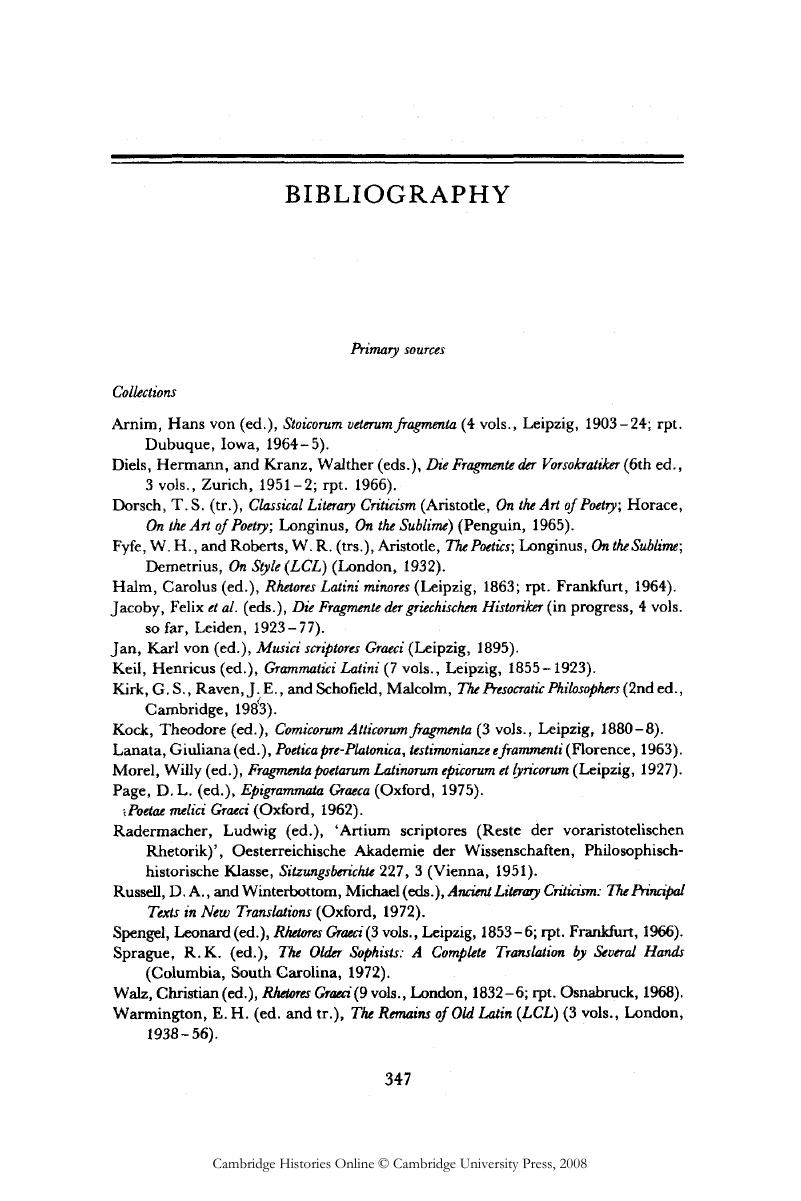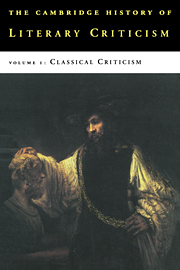Book contents
- Frontmatter
- 1 Early Greek views of poets and poetry
- 2 Language and meaning in archaic and classical Greece
- 3 Plato and poetry
- 4 Aristotle's poetics
- 5 The evolution of a theory of artistic prose
- 6 Hellenistic literary and philosophical scholarship
- 7 The growth of literature and criticism at Rome
- 8 Augustan Critics
- 9 Latin Criticism of the Early Empire
- 10 Greek Criticism of the Empire
- 11 Christianity and Criticism
- Bibliography
- Index
- References
Bibliography
Published online by Cambridge University Press: 28 March 2008
- Frontmatter
- 1 Early Greek views of poets and poetry
- 2 Language and meaning in archaic and classical Greece
- 3 Plato and poetry
- 4 Aristotle's poetics
- 5 The evolution of a theory of artistic prose
- 6 Hellenistic literary and philosophical scholarship
- 7 The growth of literature and criticism at Rome
- 8 Augustan Critics
- 9 Latin Criticism of the Early Empire
- 10 Greek Criticism of the Empire
- 11 Christianity and Criticism
- Bibliography
- Index
- References
Summary

- Type
- Chapter
- Information
- The Cambridge History of Literary Criticism , pp. 347 - 369Publisher: Cambridge University PressPrint publication year: 1990

